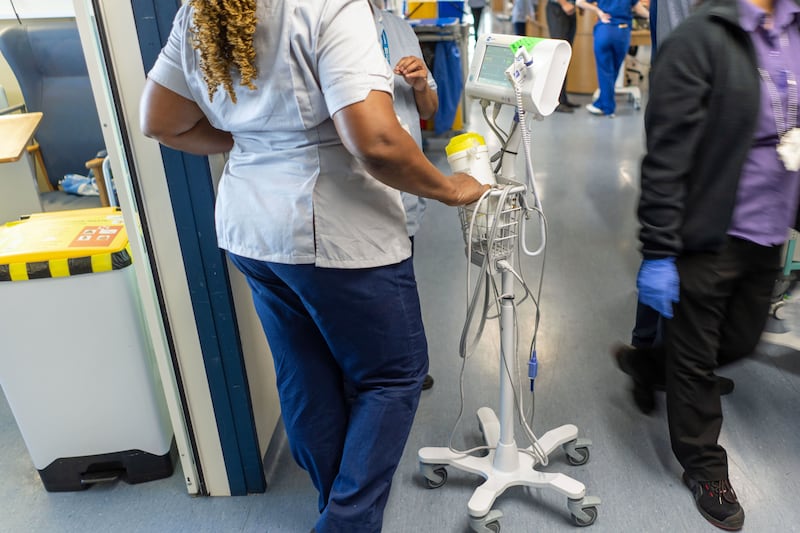A NURSING leader has warned of "unsafe staffing" if large numbers of newly-qualified nurses continue to be forced to leave Northern Ireland.
Janice Smyth, director of the Royal College of Nursing, said health trusts in Britain are "only too delighted" to recruit highly-skilled staff who cannot find permanent posts at home.
A major Department of Health report on the north's nursing workforce for the next 10 years, which has been seen by The Irish News, reveals the extent of the brain drain.
The document, "Workforce Plan for Nursing and Midwifery in Northern Ireland, 2015 - 2025", says 21 per cent of Queen's University nursing graduates left the north in 2011/12 compared with just 10 per cent in 2009/10.
Ulster University had no official figures but suggested that around seven per cent of its graduates left.
However, Ms Smyth said the figures are dated and she is in "no doubt" that almost a third of newly-qualified staff are choosing to work elsewhere.
Lucrative 'golden hello' packages, similar to those used to recruit doctors and teachers, aim to entice nursing graduates to relocate, with advertisements appearing for posts in England, Wales, Guernsey and the Republic in the past fortnight.
Countries such as America and Canada also offer "fast tracked residency" such as green cards to attract nursing staff.
While the north's five health trusts are currently offering work for 'bank' nursing staff, these are temporary posts.
It costs around £33,000 to train a nurse, with degree courses offered at Queen's University Belfast and the Ulster University.
However, training places have been severely hit by cuts, with 650 nurses studying this year compared with 730 in 2008/09.
In March, it emerged that £50 million has been spent on hiring agency nurses over the past five years due to staff shortages - many of them coming from abroad.
Ms Smyth said: "This heavy reliance on bank staff is a result of cost-saving measures and permanent posts being frozen in health trusts - with financial management dictating how nurses are employed and deployed."
She warned of the long-term consequences of a depleted permanent workforce.
"Nurses are voting with their feet as the inability to secure a permanent job has real implications in terms of career aspirations and training. It also affects them financially as they can't even get a mortgage if they doing temporary bank work," she said.
"If the number of newly qualified staff continue to leave at this rate it will lead to unsafe staffing - there will not be enough nurses to care for the people of Northern Ireland."
Meanwhile, the Chief Nursing Officer for Northern Ireland, Charlotte McArdle, said health trusts had been asked to reduce their reliance on temporary staff and fill empty jobs - to make the service "safer".
She admitted that Northern Ireland was losing between 20 to 22 per cent of graduates mainly to London hospitals - who were "aggressively recruiting at our open days".
Ms McArdle added: "I am concerned that we are losing some of these highly trained and skilled professionals because they have not been able to secure permanent posts and not because they want to travel.
"Some of the recommendations in the workforce review seek to address that by working to make Northern Ireland an employer of choice.
"Trusts need to work hard at securing our nursing graduates by offering them their speciality of choice where possible, flexible working and good perceptorship. This has begun in some trusts already."








